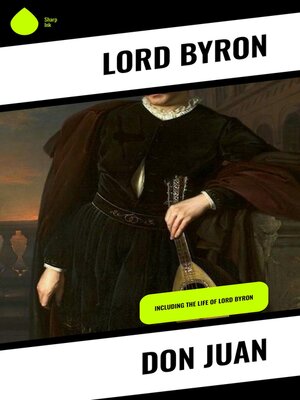
Sign up to save your library
With an OverDrive account, you can save your favorite libraries for at-a-glance information about availability. Find out more about OverDrive accounts.
Find this title in Libby, the library reading app by OverDrive.



Search for a digital library with this title
Title found at these libraries:
| Library Name | Distance |
|---|---|
| Loading... |
In "Don Juan," Lord Byron employs a satirical and often irreverent tone to explore the themes of love, identity, and societal norms through the misadventures of its titular protagonist. This mock-epic poem diverges from traditional heroic narratives, using a playful narrative structure and a conversational vernacular, allowing Byron to dissect contemporary moralities, gender roles, and the hypocrisy of his era. Published intermittently from 1819 to 1824, "Don Juan" stands as a hallmark of Romantic literature, blending autobiographical elements with a critique of the Romantic ideal while drawing on influences from classical epic poetry and Enlightenment thought. Lord Byron, a key figure in the Romantic movement, harnessed his own tumultuous experiences of love, scandal, and social estrangement to breathe life into this work. His own reputation as a libertine and the cultural milieu of early 19th-century Europe shaped the conflicts and characters within the poem. Byron's multifaceted personality and vast literary influences give "Don Juan" a unique depth that reflects both personal and societal turmoil. For anyone fascinated by the intricate interplay of satire and romance, Byron's "Don Juan" offers a rich and enjoyable reading experience. It's an essential work that challenges conventional paradigms while showcasing Byron's lyrical prowess and sharp wit. This poem is a must-read for both scholars and casual readers who wish to explore the complexity of desire and the folly of humanity.







